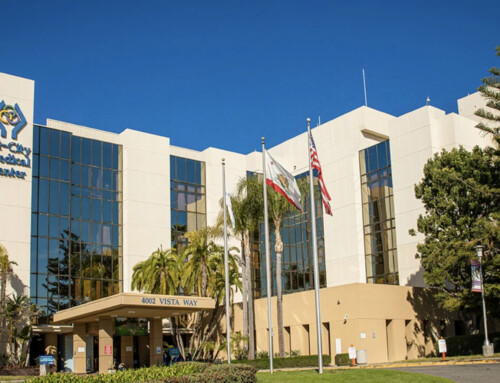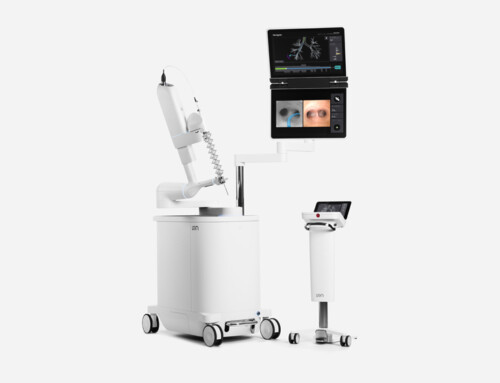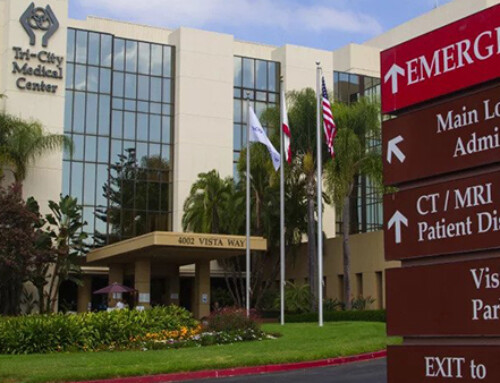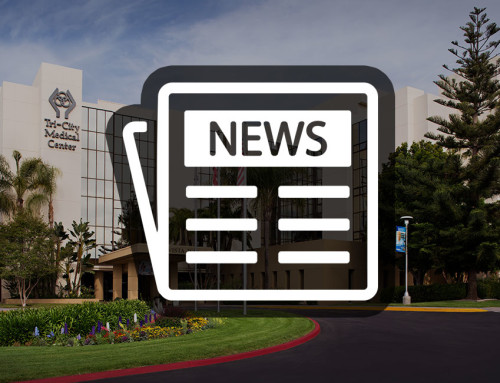Mike Connolly goes from nearly out to working out
PAUL SISSON – Staff Writer | Posted: Tuesday, March 17, 2009
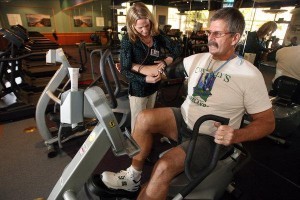
Mike Connolly works out on an exercise
machine Tuesday at the Tri-City Medical
Center’s Cardiac Wellness Center as nurse
Maryellen Schultz monitors his blood pressure.
(Photo by Bill Wechter – Staff Photographer)
OCEANSIDE — Whether it was high-tech hypothermic treatment or timely prayer, Mike Connolly said Tuesday that he knows there was something divine about his recovery from sudden heart failure.
“If it wasn’t directly divine intervention, it was intervention that the doctors have been given the ability to help me,” Connolly said, sitting outside the Cardiac Wellness Center at Tri-City Medical Center on a sunny St. Patrick’s Day morning.
Connolly’s brush with death started at about 6 a.m. Jan. 31, as he sat down to eat a bowl of cereal at his Vista home. His heart developed an arrhythmia, a sort of electrical short circuit, doctors later said. His wife, Loris, heard choking noises, but was unable to haul her 6-foot, 8-inch husband, who weighs nearly 300 pounds, out of his easy chair to start CPR.
Loris Connolly called 911 and paramedics responded. But doctors said that Connolly’s brain probably went without oxygen for as many as 10 minutes — a length of time that usually causes severe brain damage.
When Connolly arrived at Tri-City Medical Center’s emergency room, doctors there ordered immediate hypothermic treatment. The procedure dropped his body temperature to about 93 degrees Fahrenheit from a normal temperature of 98.6.
Cold treatment is increasingly being used to prevent the swelling that can cause brain damage in heart attack patients.
In Connolly’s case, it initially appeared the treatment didn’t work. Multiple attempts to revive him from an induced coma were unsuccessful. After 96 hours, his family tearfully resolved to pull the plug — but prayed for a recovery up to the minute they walked away from his bedside.
Just as they gave up, Connolly awoke. He was discharged from Tri-City two weeks ago and is now walking and talking like a normal person. No slurred speech, no clumsy stumbling; he is taking his own showers and fixing his own meals without assistance.
Connolly said Tuesday he still has a hole in his memories that stretch from one week before his cardiac arrest through one week after he woke up. He sees signs daily that his brain is still rebooting.
“There are memories coming back that are out of order,” Connolly said.
Since Connolly’s story was first reported in the North County Times, Tri-City pulmonoligist Martin Nielsen said he has faced many questions about whether the recovery was the result of effective medical care or divine intervention.
That question, he said, is simply unanswerable.
“I know that in my 30 years I’ve never seen this kind of outcome. Is it a miracle? I don’t know,” he said.
Dr. Ori Ben-Yehuda, director of the coronary care unit at UC San Diego Medical Center, said Tuesday that medicine is beginning to see more and more patients recover from severe cardiac arrest without brain damage. He said UCSD has been using a similar hypothermic treatment on its cardiac arrest patients for three years.
“It doesn’t surprise me that this therapy helped him,” Ben-Yehuda said. “But he still has made a remarkable recovery. This therapy very likely has made the difference.”
Another factor had to be Connolly’s health. He had spent the summer commuting by bicycle to his job at Hoehn Porsche in Carlsbad from his home in Vista’s Shadowridge neighborhood. He made the 20-mile round trip five days a week for several months, putting him in strong physical condition, Connolly said.
His wife, Loris, said she believes it was a combination of prayer, medical attention and physical fitness that caused such a dramatic, miraculous recovery.
“We were never praying for God to save him,” she said Tuesday. “It was always ‘please give the doctors the ability to help him’ and that’s what they did.”
Contact staff writer Paul Sisson at (760) 901-4087 or psisson@nctimes.com.
